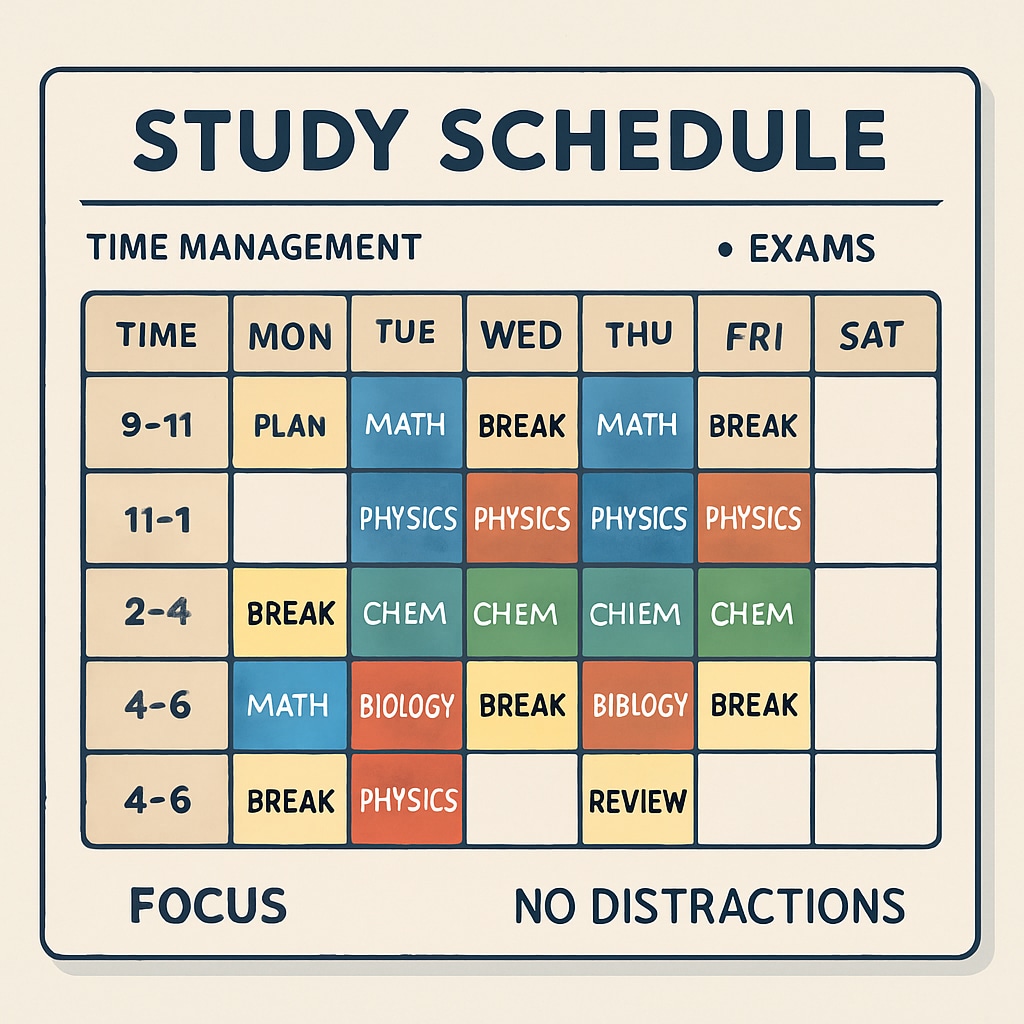Facing multiple failing exams while pursuing a physics degree can feel overwhelming. Managing time effectively and implementing focused study strategies are critical to overcoming this academic hurdle. Whether you’re struggling with physics concepts or other subjects, this guide will provide actionable steps to maximize study efficiency, regain confidence, and succeed in limited time.

Understanding the Challenge: Prioritize Your Efforts
When dealing with several failing exams, the first step is assessing your situation and prioritizing your workload. Identify which exams carry the most weight for your degree, such as core courses required for a physics degree. Once you know the stakes, rank the exams based on difficulty and potential impact on your academic record.
For example, if physics concepts like electromagnetism or quantum mechanics are central to your program, allocate more time to these subjects. Use a simple matrix to evaluate effort versus impact—this will guide you in determining where to focus your energy.
Time Management: Build a Realistic Study Schedule
Time management is crucial, especially with multiple subjects to cover. Begin by creating a study schedule that divides your remaining time into manageable blocks. Focus on high-priority topics first and leave time for review sessions.
- Break down topics: Divide each subject into smaller parts, such as chapters or key concepts, and allocate a specific time slot for each.
- Use short intervals: Apply the Pomodoro Technique (study for 25 minutes and take a 5-minute break) to maintain concentration.
- Set daily goals: Clearly define daily objectives to ensure steady progress.
Additionally, balance your schedule with breaks and self-care to avoid burnout. A well-rested mind processes information more effectively.

Effective Study Techniques: Maximize Learning
With limited time, it’s essential to use proven study techniques to optimize your learning. Here are a few strategies tailored to preparing for multiple exams:
- Active Recall: Test yourself on key concepts instead of passively reading notes. This helps reinforce memory and identify weak areas.
- Use Past Papers: Reviewing previous exam questions is a reliable way to understand the test format and focus on important topics.
- Group Study: Collaborate with peers to discuss challenging topics, share resources, and motivate each other.
- Visual Aids: Use diagrams, charts, and flashcards to simplify complex topics, especially in technical subjects like physics.
For additional guidance on study methods, refer to resources like Study Skills on Wikipedia.
Stay Positive: Building Resilience During the Process
Facing academic challenges requires mental resilience. Stay motivated by celebrating small wins, such as mastering a difficult concept or completing a chapter. Surround yourself with supportive friends or mentors who can provide encouragement and guidance.
Remember, setbacks are part of the learning process. Focus on progress rather than perfection, and keep the bigger picture in mind—a successful physics degree is within reach.
For inspiration on overcoming challenges, explore articles on psychological resilience on Britannica.
Final Thoughts: Achieve Success with Strategic Preparation
Preparing for multiple failing exams is undoubtedly challenging, but with proper prioritization, effective study techniques, and consistent effort, success is achievable. Remember, time management is your greatest ally, and resilience will keep you moving forward.
Whether you’re pursuing a physics degree or tackling other academic obstacles, these strategies will help you maximize your study time and turn your challenges into triumphs.
Readability guidance: Use short paragraphs and bullet points to summarize key ideas. Keep sentences concise and distribute transitional words to ensure smooth reading.


